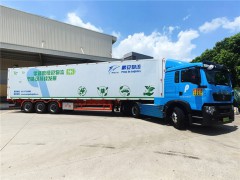据世界天然气网5月25日消息 未来10年,海上能源劳动力结构将发生重大变化,预计脱碳能源的角色将从该行业所有工作岗位的20%增加到65%。
根据罗伯特戈登大学(RGU)的最新研究,英国90%以上的石油和天然气劳动力具有中高级技能可转让性,能够在近海风能、碳捕获利用和储存以及氢气等相邻能源行业工作。
未来十年,英国近海能源行业的资本和运营活动将投资2410多亿美元,预计英国近海能源行业将需要约20万名技术人员,以确保2030年的转型。
正如RGU在《英国海上能源劳动力转移能力评估报告》中所述,预计2030年约80%的工作岗位将分布在九个关键岗位家族中:运营、技术人员、工程、项目、商业/商业开发/营销、采购/供应链管理、财务、人力资源和HSE。软技能和其他非技术技能通常高度转移到相邻的能源行业。
预计到2030年,约10万个工作岗位将由从现有石油和天然气岗位转移到海上可再生能源岗位的人员、新毕业生以及从现有英国海上能源行业以外招聘的新员工填补。
目前,在2021年,约有16万人直接和间接受雇于英国海上能源行业。为了支持英国海上风电、氢气、碳捕获和储存以及重要的持续石油和天然气活动,这一数字必须至少增加4万人。
吴恒磊 编译自 世界天然气
原文如下:
Majority of UK offshore workforce transitioning to low carbon energy by 2030
The offshore energy workforce mix will change significantly in the next 10 years, with roles in decarbonised energies projected to increase from 20 to 65 per cent of all jobs in the sector.
According to new research from Robert Gordon University (RGU), over 90 per cent of the UK’s oil and gas workforce have medium to high skills transferability and are well-positioned to work in adjacent energy sectors like offshore wind, carbon capture utilization and storage, and hydrogen.
With over $241 billion in investments to be made in capital and operating activities in the UK offshore energy sector over the next ten years, around 200,000 skilled people are expected to be required in the UK offshore energy industry to ensure delivery in 2030.
As stated in the UK Offshore Energy Workforce Transferability Review by RGU, around 80 per cent of the jobs in 2030 are envisaged to be in nine key job families – operations, technicians, engineering, projects, commercial/business development/marketing, procurement/supply chain management, finance, HR, and HSE. Soft skills and other non-technical skills are generally highly transferable to adjacent energy sectors
Around 100,000 of the jobs in 2030 are projected to be filled by people transferring from existing oil and gas jobs to offshore renewable roles, new graduates, and new recruitment from outside the existing UK offshore energy sector.
Currently, around 160,000 people directly and indirectly employed in the UK offshore energy sector in 2021. To underpin the developing offshore wind, hydrogen, carbon capture and storage as well as the vital ongoing oil and gas activities in the UK that number must increase by at least 40,000.
免责声明:本网转载自其它媒体的文章,目的在于弘扬石化精神,传递更多石化信息,并不代表本网赞同其观点和对其真实性负责,在此我们谨向原作者和原媒体致以敬意。如果您认为本站文章侵犯了您的版权,请与我们联系,我们将第一时间删除。







